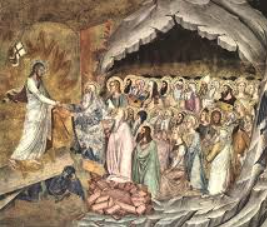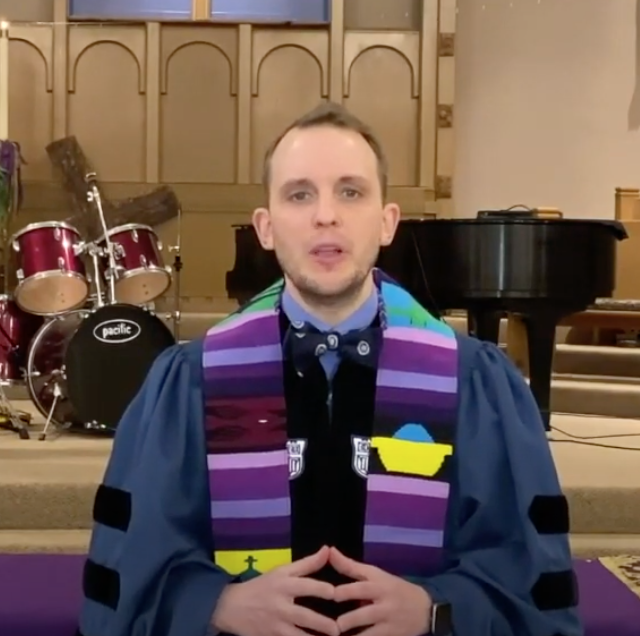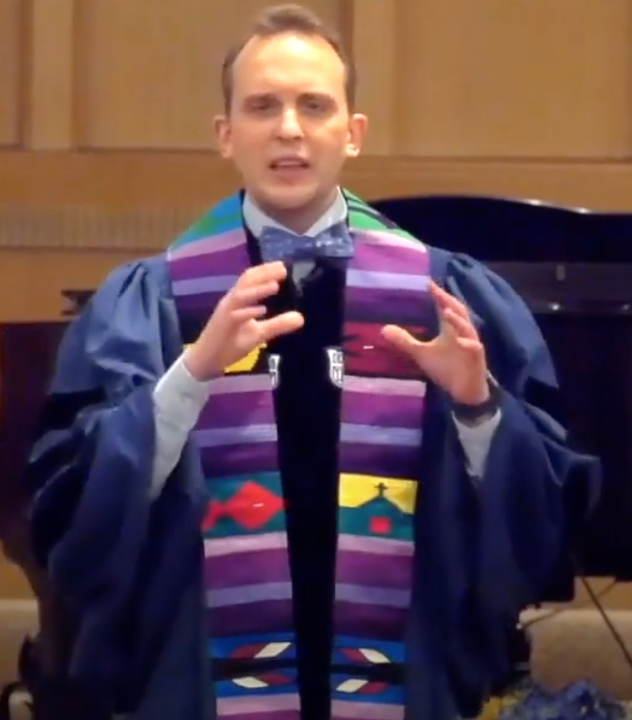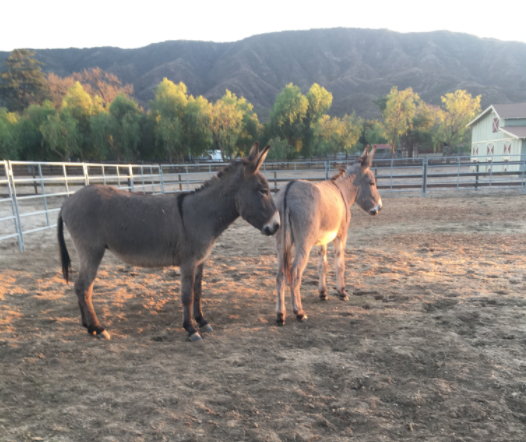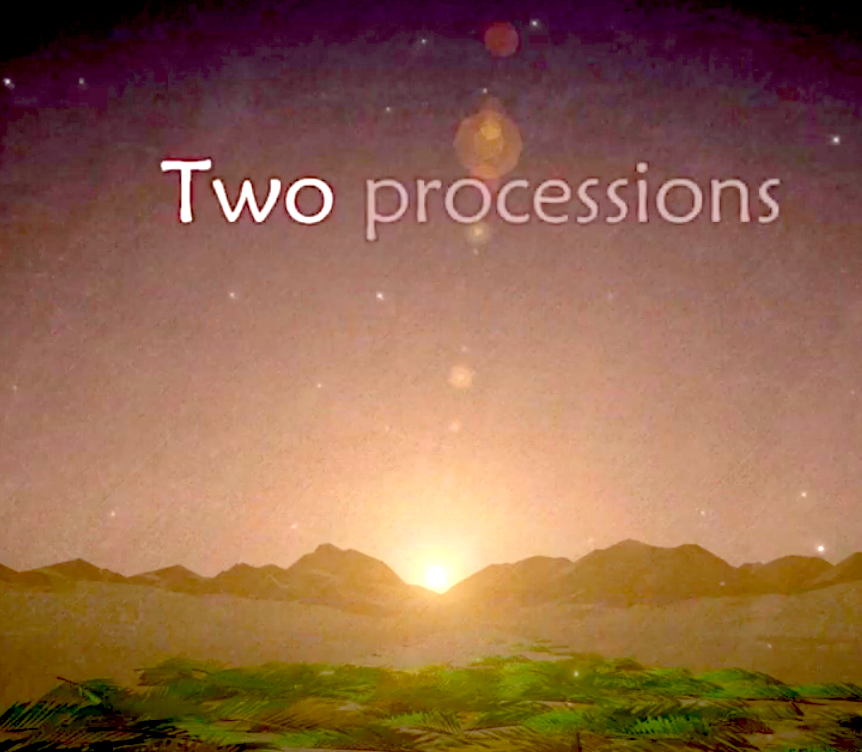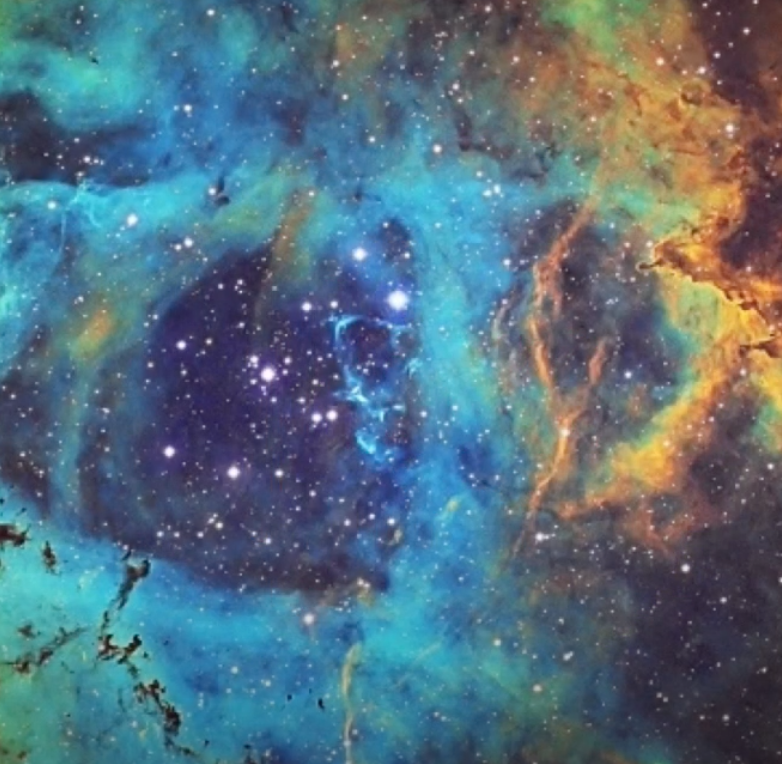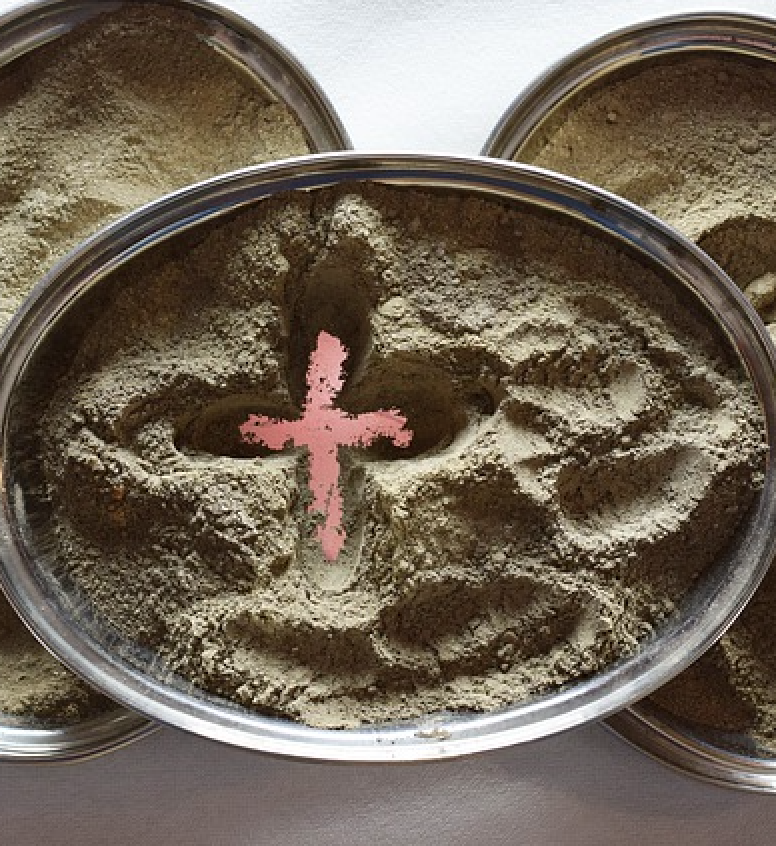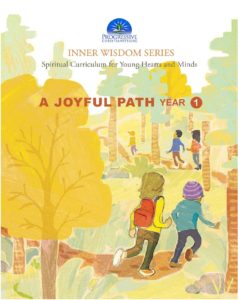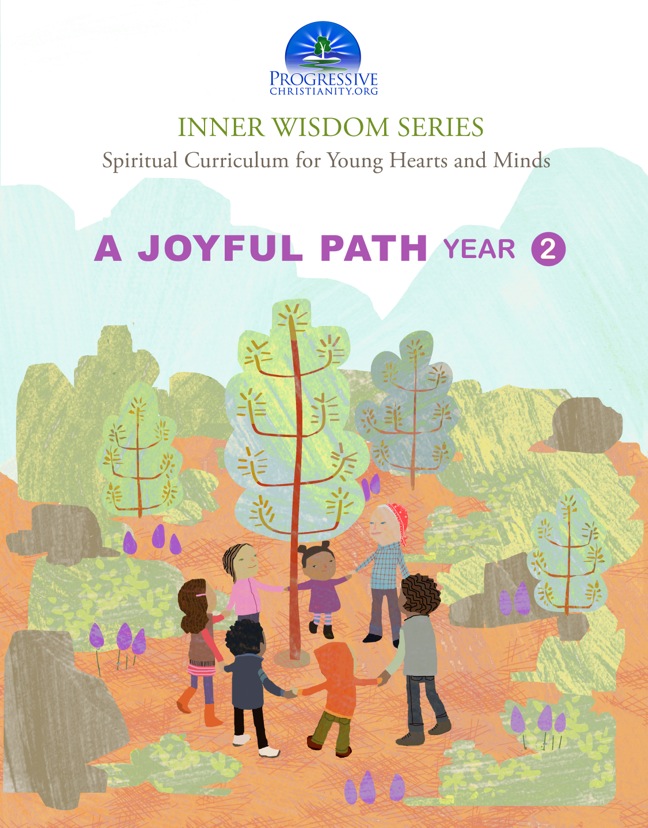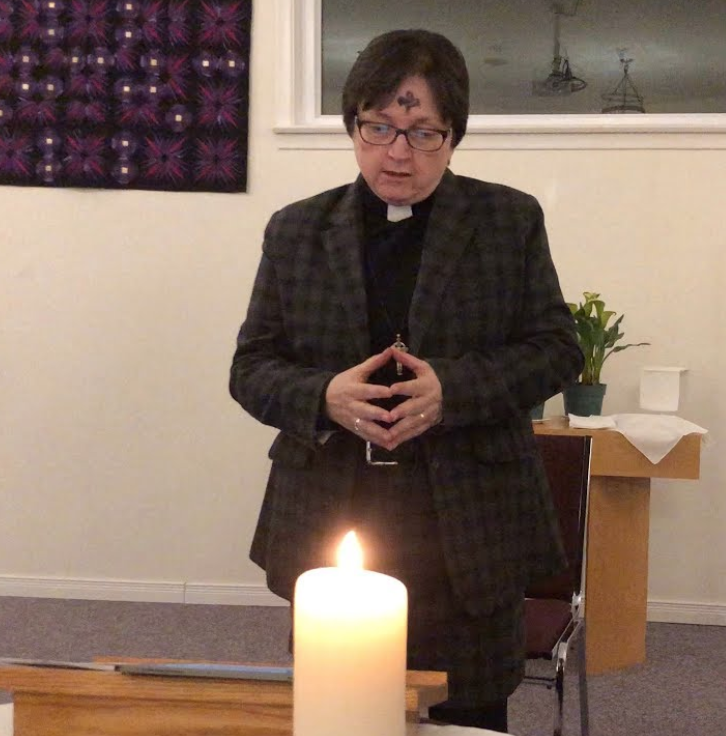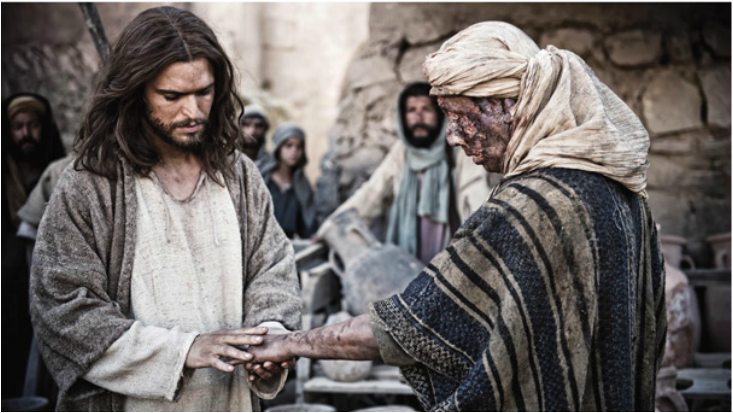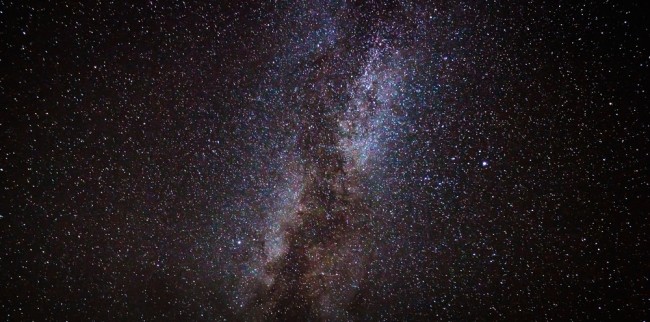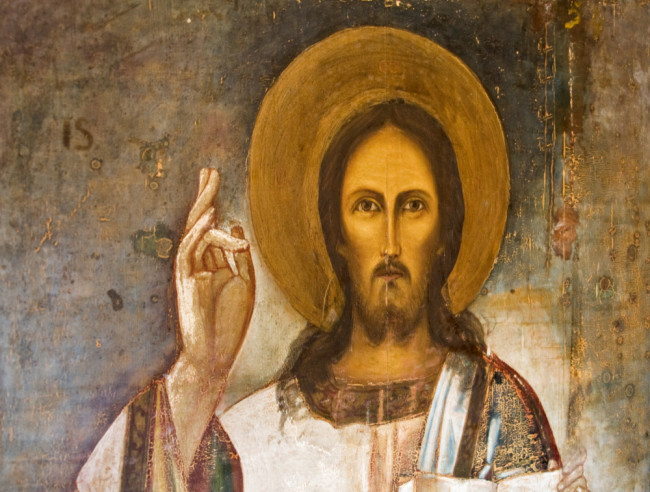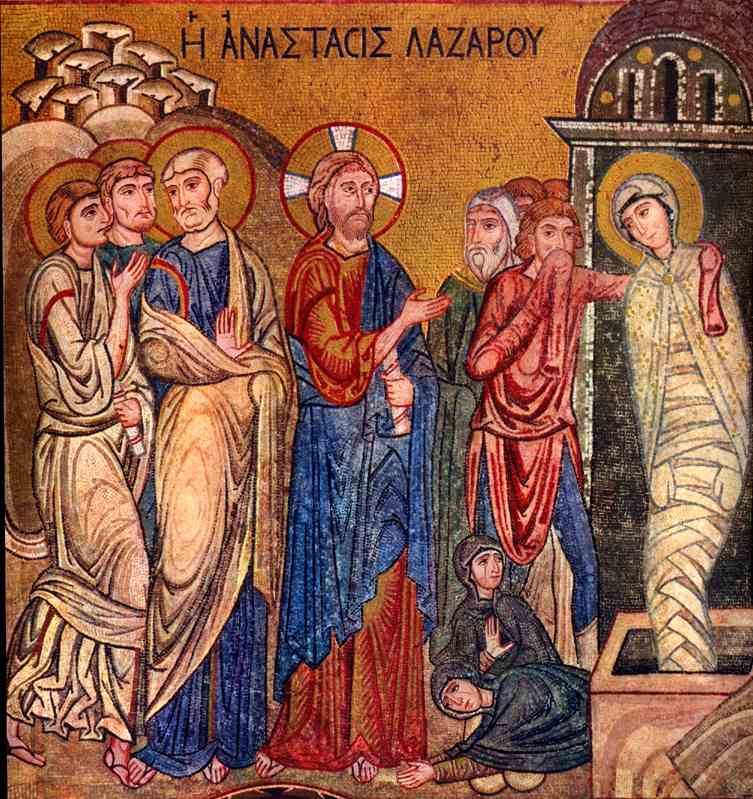A Liturgical Piece
When all is burned away by violence, fear and greed We tremble in our terror that we’ve lost the things we need.
The week between Palm Sunday and Easter
How are we supposed to cope with the despair that sets in when our known world is stolen and an invading, oppressive regime steps in?
When all is said and done, what then are we to make of the mythic tale of Jesus’ death and resurrection, metaphorically told to convey what all of us might like to assert to be the “gospel truth?”
Palm Sunday is a festival celebrated by Christians around the world. Jesus went to Jerusalem; that much is certain. The details are less clear.
In the midst of the chaos, which is Ukraine, Father Stephan spoke about life. Five funerals yesterday, a wedding and a baptism this morning. Father Stephan is from Kiev, where he hopes to return soon.
In the wilderness of these days, I find myself tempted to retreat from the world around me. The pandemic has trained me
On Palm Sunday, there were two parades: one representing oppressive Roman Imperial Theology and one representing the compassion and selfless love of the Reign of God. Join Co-Executive Director of ProgressiveChristianity.org Rev. Dr. Caleb J Lines as he talks about the 8th Point of Progressive Christianity in relation to Palm Sunday.
Jesus may have been humble. But in the last couple of months, I’ve learned a thing or two about donkeys. And I can say this: Jesus wasn’t humble because he rode into town on a donkey. A donkey is as noble an animal as any horse.
A solemn Palm Sunday hymn based on the book The Last Week by Marcus Borg and John Dominic Crossan
Join us as we usher in the season of Lent with The Fountains' unique "ancient-future" observance of Ash Wednesday. Taking seriously the reality of our mortality, we also connect with the broader creation and the gift of life — all in a way ancient Christians may have recognized; around a bonfire.
Let us feast on simple pleasures, and fast from all that gets our bodies and souls out of balance.
God, Our Source and Ground of Being, In you we live, move, and exist.
Our Earth is sacred and does not belong to us. When we recognize that we are merely stewards of creation which has been entrusted to our care, it shifts our outlook. We cannot continue to ravage the earth, deplete its resources, and consume without restraint while claiming to be faithful to our God. The Gospel is one of interdependence. All of creation is woven together in a delicate web that we must nurture faithfully.
*** This page has moved - please click here to Order Hard Copy and DVD. To see all Purchase Options Please Click Here.
In A Joyful Path, Year Two, we focus on some of the main tenets of Progressive Christianity and Spirituality, giving our children the foundation they need to walk the path of Jesus in today's world. It has stories and affirmations written to help children clarify their own personal beliefs while staying open to the wisdom of other traditions.
An Ash Wednesday Reflection: Our changing understanding of what it means to be human, changes the nature of Ash Wednesday's wake-up call.
Genesis 2:15-17; 3:1-7, Matthew 4:1-11
Each year as Lent approaches, I find myself flirting with the idea of giving up Lent for Lent. Lent is just too much work. For centuries, during Lent the church has emphasized so many concepts that seem alien to the 21st century mind. Each year during Lent preachers are required to undertake the unenviable task of unpacking unpopular, seemingly antiquated concepts in an effort to encourage the contemporary churchgoer to entertain the equally antiquated rituals of Lent. I mean Christmas and Easter might attract a few more people to our sanctuary, but how do you attract people with talk about repentance or fasting? Just look at our readings for this morning. Temptation is the order for toady. Eve and Adam succumbing to temptation, the Apostle Paul prattling on, heaping condemnation upon the first parents for having given in to temptation, and then Jesus himself resisting temptation from non-other than the Devil. Not exactly cheery stuff designed to bring comfort on a cold damp winter morning, where apart from the time change, there are very few signs of a longed for spring.
On Ash Wednesday, we dare to speak the truth. We speak the truth not in the refreshing light of the morning but in the cold darkness of a winter’s night. We are dust and to dust we shall return. We will die. We are mortal beings and so our lives will end. Our culture has taught us to deny death. Even our funerals have become celebrations of life. But life without the reality of death is lived cheaply, shallowly, in a half-sleep always pushing away and denying reality. So, on Ash Wednesday let us revel in the knowledge that we are dust and to dust we shall return. Revel in this knowledge because it liberates us!
“Mindfulness is "paying attention in a particular way: on purpose, in the present moment, and non-judgmentally." ... It could have been at the mouth of one of the shallow caves carved by Nature out of the limestone cliffs of Mount Quarantania, facing Jericho on the Jordan River and the Dead Sea to the southeast, that Jesus sat to gaze at forty dawns in the wilderness before he began his ministry. This 40-day season of Lent invites us to join Jesus in practicing mindfulness as he did in the desert.
This coming week we have the opportunity to enact our faith with those fleeing violence and seeking sanctuary in our country. Doing so is how we can actually make Holy Week holy.
In the last lesson about living courageously, the emphasis was on discovering the courage that exists within our divine nature. The Easter story of Jesus shows how courage in the face of ignorance and fear is ultimately an expression of true selfless love. His appearance in Jerusalem despite the threats against him was not a grand gesture to show how brave he was but a selfless act of friendship and love. His life was an expression of love for all people, and he lived each day as a messenger of that light. Considering his personal safety would have been an ego affirmation, which he strongly rejected when Peter expressed fear for his teacher’s life.
Civilization defines justice as retribution – payback; an eye for an eye. But the deeper meaning of justice is distributive: the rain falls on the good, the bad, and the ugly without partiality. Civilization does not use that definition except in cases where there is clearly injustice if partiality enters the picture.
An Alternative Ash Wednesday Ritual
Leader: The season of Lent calls us to journey along the edge, to anticipate that final trip to Jerusalem. Group response: Lent call us to the cutting edge, when the wheat falls to the ground and new life comes forth.
Today, like Jesus, we may be facing a barren desert We may be tempted to do the wrong thing To do something selfish To do something hurtful.
About the life of Jesus of Nazareth, the Bible records some of the story A man who walked on Earth, helping us seek the God of eternal glory
The Gift of Mortality
Avowed atheist Susan Jacoby recently created a dust up with a recent article in the New York Times Sunday Review entitled, “The Blessings of Atheism.” She wrote in response to all the god-talk that appeared in the immediate aftermath of the Newtown massacre; with all those unanswerable questions or inadequate answers to human suffering and death so often peddled in popular religious belief. So too, not long ago author and “non-believer,” Christopher Hitchen’s posthumously published his little book Mortality; recounting his rambling thoughts on his own imminent demise; after a terminal diagnosis left him a sufficient number of days to find himself “deported from the country of the well across the stark frontier that marks off the land of malady.” But what, or where to, after that? What if this really is all there is? It seems there has always been the human hankering to imagine all kinds of fanciful notions, in our attempts to recapitulate our mortal existence into something more than it is. Many religious traditions, including centuries of “mainline” orthodox Christianity, employ great mythic stories to describe a life subsumed into something greater than we can either know, or grasp, except by “faith.” Heaven knows, some folks try to better themselves, merely in the hope of a remote possibility there something more, after our death, which is a certainty. But in the end, is it all dust and ashes? And is that OK? This is the liturgical time of year when many in the Christian tradition undergo a seasonal pilgrimage in which the faithful are reminded at the onset we mortals are nothing more than dust. And so we will one day return to that from whence we came. Then the traditional forty days end with the perennial re-enactment of a passion play commemorating the mortal demise of the one whom Christians even these many centuries later would profess to follow. Many do so in the hope of some kind of immortality for themselves in some indecipherable form or other; attributing to Jesus a “resurrection” that means the same thing to them as god-like immortality; while others of us may find such imaginings to be not only reasonably implausible, but of less importance than what we take to be of greater significance and meaning in this faith tradition. Otherwise, the vainglorious hope of immortality can become so enshrouded in our mortal fears that we become – like Lazarus in his early grave – so wrapped up in death that we fail to truly acknowledge and appreciate the gift of our mortality for what it is; nothing more, nor less. With the certain assurance then that we are but dust and ash, we can ask ourselves if the gift of our mortality is not only enough, but more than enough? And if so, as the psalmist says, how then shall we “number our days, that we may apply our hearts to wisdom?” (Psalm 90:12)
The Year of Luke is the first in a series of commentaries on biblical scripture found in the three-year cycle of Christian liturgical



